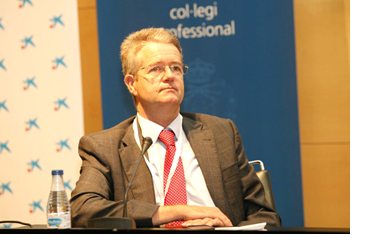You will know the song “You’ll never, ever walk alone. Walk on, walk on with hope in your heart”. So goes the anthem of FC Liverpool on Anfield Road.
To me, this basic message is most accurate as, generally speaking, much more can be achieved by pooling diverse strengths together than by operating alone. And a most important one as well because as a business owner, that way, you send out the clear message that with team spirit a lot more can be achieved than with single, genius soloists. And to remain in the football field: why does FC Barcelona or FC Bayern Munich generally offer much better football than the Spanish or German national teams respectively, despite the fact that the majority of the players is the same. The reason is that they are not just a well-integrated TEAM, they stick together and have to do so every day.
Let me describe my x-ray vision and have a closer look at internationally active businesses. Why are some growing more than others and why are some a lot more profitable than the rest?
First, it is clear to me that companies that work on the basis of a consistent brand approach, team work and a multinational cooperation are a lot more successful. And let’s be realistic: it is just as clear to clients who are 10.000 km away, and with the same consequences.
That brings me to another factor, profitability. In my view, the most profitable internationally active businesses are the ones with the best local setup in the export country. When I really want to inform myself about another country, direct local knowledge is necessary to remain competitive. It sounds admittedly somewhat martial but the information value of my respective local network (whether Aleksey in Ukraine, Gabriel in Sao Paulo, Keisuke in Tokyo, Iwona in Warsaw or Vikal in New York) is almost always a lot more compact, realistic and to the point than what the Internet can tell me.
Going back to the FC Liverpool anthem, with just hope in the heart you cannot achieve anything, or as my father would keep telling me: you can’t get something from nothing. That is why everybody should build his own glocal network. Our glocal Adminex partners meeting in Cologne at the beginning of April will give us such an opportunity. Our partners are welcome to come by, with no strings attached and free of cost, introduce themselves and ask questions.
In this context, my glocal regards to all of you.


